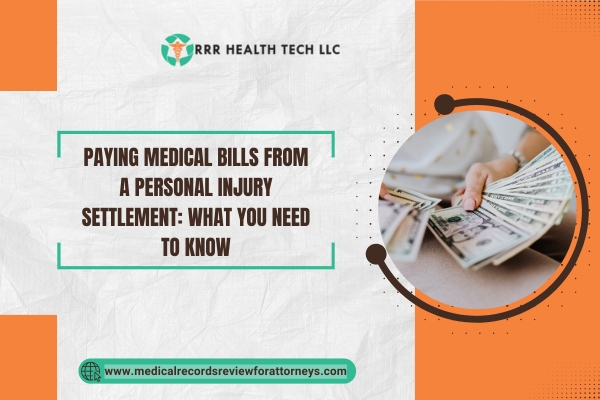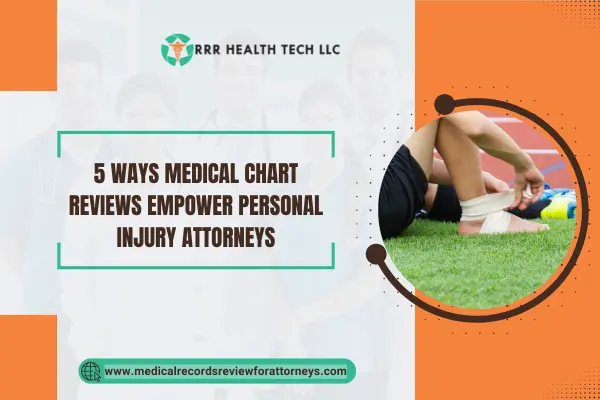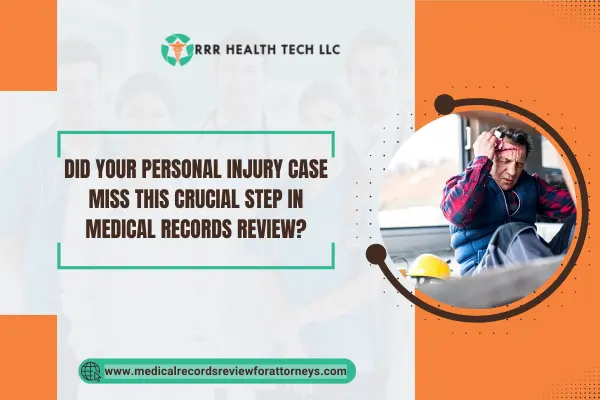
Understanding Personal Injury Settlements
Paying Medical Bills for personal injury settlement can be defined as a settlement reached between the victim and the negligent party (or insurance company) to bring a compensation agreement for an accident.
• Types of Damages: Settlements can include medical expenses, lost wages, pain and suffering, and various other costs involved.
• Settlement Process: The procedure generally involves negotiation, and it is also important to understand how the medical bills are accounted for within that negotiation.
How Medical Bills Are Paid from Settlements
Direct Payments to Medical Providers
In numerous instances, the medical bills are settled from the amount that is agreed upon in the settlement with the medical care practitioners.
• Lien Agreements: Some medical providers may pay for some services upfront and get guaranteed repayment from the settlement proceeds lien on your settlement, ensuring they will receive payment prior to your funds being disbursed.
• Negotiated Rates: In most cases, attorneys will negotiate with medical providers in order to decrease the total amount which is owed because doing so will increase the amount of settlement which will be offered to the client.
Reimbursement to the Injured Party
In case you cleared your medical expenses using personal funds, it is possible to be reimbursed from your settlement.
• Documentation Required: In order for the settlement to be enforced, all receipts, payment forms, and medical paperwork need to be kept in order to defend the rebuttal to reimbursement claim where funds for fees were paid from personal resources.
• Making Payments: Also depending on the negotiation steps involved, reimbursements may take a long time based on the settlement agreement.
The Influence of Health Insurance on Settlements
The presence of health insurance often tends to affect the manner in which the medical fees of a personal injury case are dealt with.
• Coordination of Benefits: If you have health insurance, it may cover some of your medical expenses, which can alter the overall value of your settlement.
• Subrogation Rights: It is quite common for insurance companies to claim reimbursement from your settlement regarding the expenses incurred on your behalf. This will in turn diminish the sum that you receive at the end.
Settlement Negotiations for Medical Expenses
Negotiating bills can be an underrated and important focal point of the overall case as it relates to the monetary pay out from settling the case.
• Ask for Detailed Billing Statements: Make sure that you have a proper description of each line that you are paying.
• Cut Deals with Charges: Most providers cut down bills substantially if they know that you are settling.
• They Cited Medical Records When Used: They can cross out extraneous fees or point out serious discrepancies in your medical files.
Caring Out or American Caring Documents
This is one of the most powerful documents (protect or disable the ability to turn the page) that can help a person make the most out of their injury claim that supports everything such as prove an injury claim or compensation claim.
• Constructing a Case Precisely: A client’s medical expenses might have been overlooked, but with the use of advanced software, attorneys can capture every detail and reimburse clients appropriately.
• Identifying Errors: Contested medical records may highlight instances of superfluous charge submissions that can be challenged.
Case Studies
Case Study 1: Settlement from a Car Accident
• Overview: Patients have undergone costly treatments as a result of being involved in accidents.
• Challenges: Worrying about enormous expenses and not knowing the extent to which the settlement would reimburse them incurred excessive stress for patients.
• Solutions: The patients have been supported by attorneys who, on behalf of their patients, spoke to medical practitioners to settle debts under increasingly lower monetary amounts.
• Compensation: Patients have had their payment and additional payments for pain and suffering accepted.
Case Study 2: Slip and Fall Incident
• Overview: A client suffered and was treated for multiple conditions after slipping and falling while attending a retail store.
• Challenges: Managing numerous unpaid medical bills with their heap in regard to settlement and the outcome is baffling for the client, driving them insane.
• Solutions: For effective medical expense documentation, the lawyer employed medical record review services and negotiated a payment rate with the providers. This approach provided reasonable costs within the settlement.
• Compensation: The plaintiff was awarded a settlement that encompassed, in addition to medical expenses, wage loss, and emotional distress damages.
Conclusion
Understanding how medical bills are paid from a personal injury settlement is crucial for anyone navigating the aftermath of an accident. By knowing the processes involved, including the roles of health insurance and negotiation strategies, injured parties can better manage their financial responsibilities. Additionally, utilizing medical record review services can significantly enhance the effectiveness of legal representation, ensuring that all medical expenses are accounted for and justified. Being informed empowers individuals to make better decisions and secure the compensation they deserve.


